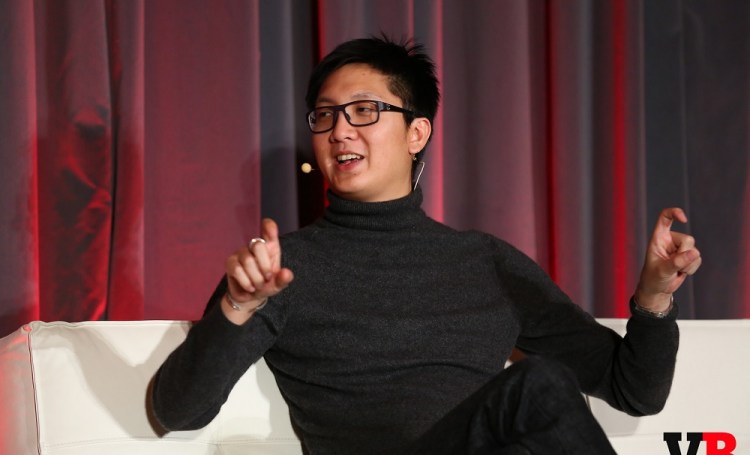Merel: For Western developers who are thinking about the Chinese market, what’s the right time? How valuable do you have to be? What do you have to achieve before you start thinking about China?
Lyndon: There are two approaches to getting into China. The first approach is engaging China early on, before your game launches. That will give you the best start, but it stretches your development cycle before you can launch the game. You also need to address the Chinese market. If you want to do a simultaneous launch, your game has to be compatible with Chinese devices, Chinese SDKs, distribution strategies. That can take anywhere from two to three months, easily.
The other way to get into China is having a success in the west first. You acquire the brand power to break into China. In that scenario, you’d better make sure that you work fast on getting into China, or at least have some discussion before the game launch. Once your game starts to boom, you want to come to China as fast as possible. That’s the moment when you can negotiate for the best deal.
Merel: A lot of people tend to think of Asia as a market that doesn’t really exist. The Chinese, Japanese, and Korean markets are all very different. Have you ever seen a game do well in all three markets?
Lyndon: Fundamentally, the expectations for games in all three countries are different. Korea likes hardcore gameplay. The Japanese like deeper story-driven games with stronger art direction. Chinese gamers, at the end of the day you need to monetize them.
I’ve been asked many times – “Why are no Korean mobile games successful in China? Other MMO games are popular on the PC.” We’ll only see true multi-region hits when the technical specifications have almost plateaued. If you look at Crossfire or Dungeon Fighter, the technical evolution on PC has almost stopped.
Merel: Western developers tend to start with the core game loop. With games in the Asian market, it seems like the metagame is as important or more so.
Lyndon: Absolutely. With iDreamSky, we started publishing games in 2011. We’ve seen that trend develop. In China, the casual space is very competitive already. Most people are making mid-core and more advanced gameplay mechanics. Western games, when they come into China, what they miss is the metagame.
Chinese gamers don’t care that much about the core game loop, the core gameplay experience, especially when you overlook the casual category. If you look at most of the mid-core games in China, the core game is pretty much playing in auto-mode.
Recently there’s a new Korean game called Future Fight, a Marvel comics title. There’s another Marvel game called Contest of Champions. People like Contest of Champions because of the fighting mechanics. But when you play Future Fight, the core gameplay basically runs on autopilot. Once you finish the first level, you can just switch to auto-mode and it runs itself. You’re barely playing the game at that stage. When people actually play the game is after that core game loop. They go in and collect the rewards they’ve found and upgrade their characters and craft stuff and slot stuff. That’s where Chinese mid-core gamers have their fun, in the metagame.
In Western games, the metagame is a support for the core game. In China it’s the reverse. The core game is a support for the metagame.
Merel: You’ve worked with a lot of companies coming from the West into China. What’s the best example of someone who’s come in and been a spectacular success?
Lyndon: Halfbrick was probably our first and biggest success. Most important of all is building trust. A good Chinese publisher will always tell you something that you think is bogus. “What? You’re serious?” It’s hard to understand and digest when you don’t really understand or appreciate the market. But with Halfbrick, we understood that the only way to build trust is through communication.
Early on, we invited their whole team, five of the core team members, to come to China and experience China for a couple of weeks. We weren’t even talking business. We just took them to various places in China. We went to conferences, to platform meetings, to device stores, to wholesalers. Understanding the magnitude of this market, appreciating the culture gap—When you come to China you need to be open-minded.
Merel: Once you get past building the relationship and understanding, what are the factors that go into changing or modifying a game to fit the local market? What are the key success factors for those games?
Lyndon: The one thing iDreamSky has been able to innovate on this area. We do all the work for the developer – integrating the SDK, making changes, adding Chinese elements to the game, readjusting the user flow for Chinese gamers. We do all that internally. That’s one key thing. It’s a big trust issue. You’re handing your source code to a Chinese company. But we have a track record that’s allowed developers to be comfortable with us.
Merel: If you were building a company in the West and wanted to aim it at the Chinese market, how would you build it differently to introduce your Western games to China?
Lyndon: If that’s the mindset you have, bringing in Chinese staffers and people with experience in the Chinese industry to be part of your team is going to be an important step. Having someone as a founding member of the company who understands the Chinese market and has success in bringing games to China, that helps with the trust issues I was talking about.
VentureBeat's mission is to be a digital town square for technical decision-makers to gain knowledge about transformative enterprise technology and transact. Learn More



